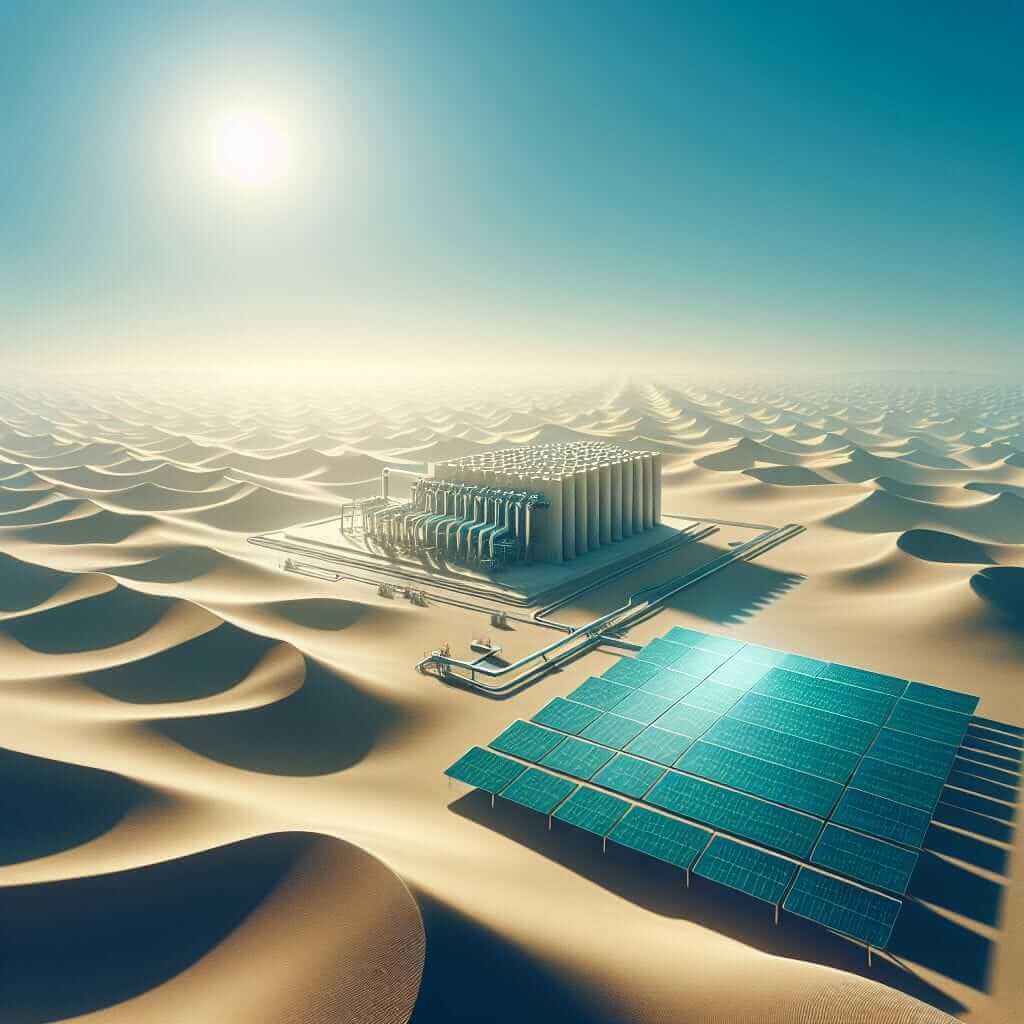The IELTS Reading section is an essential part of the examination, requiring students to demonstrate their comprehension and analytical skills within a limited time frame. The topic of “Technological solutions to water scarcity” is not only relevant but increasingly prevalent in recent years due to global environmental concerns. This makes it a potential subject for future IELTS exams. In this article, we will provide a comprehensive reading passage along with questions and answers to help you practice effectively.
Reading Passage
Technological Solutions to Water Scarcity
Water scarcity is one of the most urgent environmental issues facing the world today. With the global population continuing to rise and climate change exacerbating water shortages, innovative technological solutions are critical. Numerous technologies are being developed and implemented to address this challenge, including desalination, water recycling, and advanced irrigation systems.
Desalination
Desalination is a process that removes salts and minerals from saline water to produce fresh water. This technology has been particularly beneficial in arid regions where freshwater is scarce. Modern desalination plants use reverse osmosis, where seawater is forced through a semipermeable membrane that filters out salt and impurities. While energy-intensive and costly, advances in renewable energy sources, like solar and wind power, have begun to reduce the environmental footprint and operational costs of desalination plants.
Water Recycling
Water recycling involves treating wastewater to make it reusable. This process typically includes physical, chemical, and biological treatment stages that remove contaminants. Recycled water can be used for various purposes, such as agricultural irrigation, industrial processes, and even potable water supply in some cases. Countries like Singapore have invested heavily in water recycling technologies to ensure sustainable water management. This technology can drastically reduce the strain on existing freshwater sources and provide a reliable water supply.
Advanced Irrigation Systems
Agriculture is one of the largest consumers of water globally. Traditional irrigation methods are often inefficient, resulting in substantial water loss. Advanced irrigation systems, such as drip and sprinkler irrigation, have been developed to maximize water use efficiency. These systems deliver water directly to the plant roots, minimizing evaporation and runoff. Smart irrigation technologies that utilize sensors and automated controls further enhance water savings by adjusting water delivery based on soil moisture levels and weather conditions.

Cloud Seeding
Cloud seeding is a weather modification technology that aims to enhance precipitation. This process involves dispersing substances like silver iodide into the atmosphere to encourage cloud formation and increase rainfall. Although still a subject of debate among scientists, cloud seeding has shown promising results in some regions experiencing prolonged droughts. It presents a potential solution to complement other water scarcity technologies.
Innovative Water Storage
Effective storage and distribution of water are crucial in managing water scarcity. Innovative water storage solutions, such as underground reservoirs and rainwater harvesting systems, have been developed to capture and store rainwater for later use. These methods help mitigate the effects of drought and ensure a steady water supply during dry seasons.
Questions
Questions 1-3: Multiple Choice
- What is the main advantage of desalination in arid regions?
- A. It is low-cost and energy-efficient.
- B. It provides a reliable source of fresh water.
- C. It enhances agricultural productivity.
- D. It uses readily available agricultural runoff.
Questions 4-6: Identifying Information (True/False/Not Given)
- Desalination plants have no environmental impact.
- Water recycling can only be used for non-potable purposes.
- Advanced irrigation technologies help reduce water wastage in agriculture.
Questions 7-9: Matching Headings
Match the following headings with the correct paragraph from the passage:
- A. The Impact of Food Security
- B. Techniques for Enhancing Rainfall
- C. Efficient Water Management in Agriculture
- D. Addressing Water Scarcity through Reuse
- Desalination
- Advanced Irrigation Systems
- Water Recycling
Questions 10-12: Sentence Completion
Complete the sentences below with words taken from the passage.
-
Singapore has made significant efforts in investing in __ to maintain sustainable water management.
-
___ deliver water directly to plant roots, reducing evaporation.
-
__ is a weather modification technology aimed at increasing rainfall.
Answer Key
Questions 1-3
- B. It provides a reliable source of fresh water.
- D. Addressing Water Scarcity through Reuse
- C. Efficient Water Management in Agriculture
Questions 4-6
- False
- Not Given
- True
Questions 7-9: Matching Headings
- Desalination – B. Techniques for Enhancing Rainfall
- Advanced Irrigation Systems – C. Efficient Water Management in Agriculture
- Water Recycling – D. Addressing Water Scarcity through Reuse
Questions 10-12: Sentence Completion
- water recycling
- Advanced irrigation systems
- Cloud seeding
Common Mistakes
- Misinterpreting questions that require careful consideration of the passage context.
- Overlooking the keywords in the questions that match directly with the passage.
- Rushing through the text without fully understanding it.
Vocabulary
- Desalination (noun) /dɪˌsælɪˈneɪʃən/: The process of removing salt from seawater to make it usable.
- Potable (adjective) /ˈpoʊ.tə.bəl/: Safe to drink; drinkable.
- Evaporation (noun) /ɪˌvæpəˈreɪʃən/: The process of turning liquid into vapor.
- Contaminants (noun) /kənˈtæmɪnənts/: Substances that make something impure or unclean.
Grammar Focus
- Relative Clauses: e.g., “countries like Singapore, which have invested heavily in water recycling technologies.”
- Use: To provide additional information about the noun.
- Example: The residents, who were pleased with the results, supported the new initiative.
Advice
- Practice Regularly: Consistency is key in preparing for the IELTS Reading section.
- Focus on Keywords: Pay close attention to the keywords in the questions and the passage.
- Time Management: Allocate your time wisely, ensuring you have enough time to answer all questions.
- Develop Vocabulary: Enhancing your vocabulary will help you understand passages more quickly and accurately.
By practicing with exercises like this, you’ll be well-equipped to handle the Reading section of the IELTS and improve your overall score. For more practice materials, you might find Global Water Scarcity Solutions and The Impact of Climate Change on Water Scarcity particularly useful.
Good luck with your IELTS preparation!